
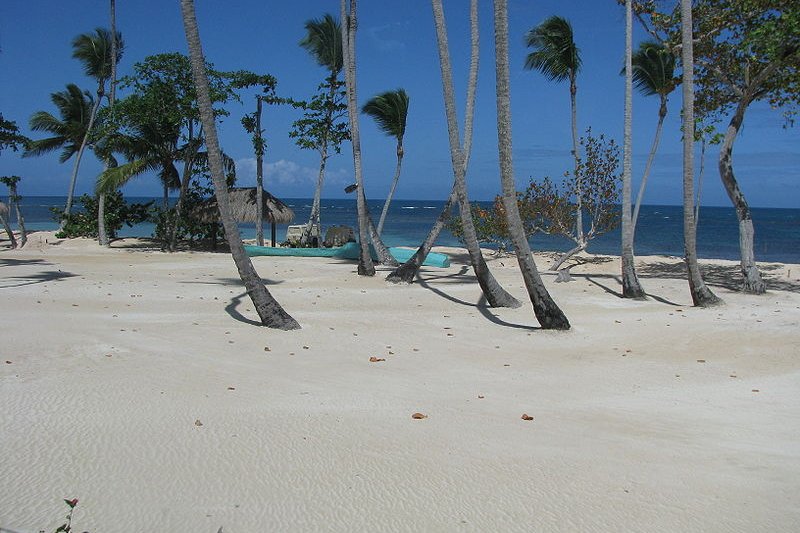 Las Terrenas beach, Dominican Republic
Las Terrenas beach, Dominican RepublicSource: https://commons.wikimedia.org/wiki/File:Las_Terrenas_beach_2.JPG
Author: Captain-tucker

Dominican Republic, not to be confused with Dominica, is a country occupying the eastern portion of the island of Hispaniola, in the Caribbean. Dominican Republic covers 48,442 sq km (18,704 sq mi) and is part of the Greater Antilles archipelago. It is the second largest country in the Caribbean after Cuba, and has a population of slightly over 10 million people (2011 estimate).
The Dominican Republic is a democratic republic headed by a president. Its capital and largest city is Santo Domingo. The official language here is Spanish. The country is in the Atlantic Time zone, which is four hours behind Coordinated Universal Time.
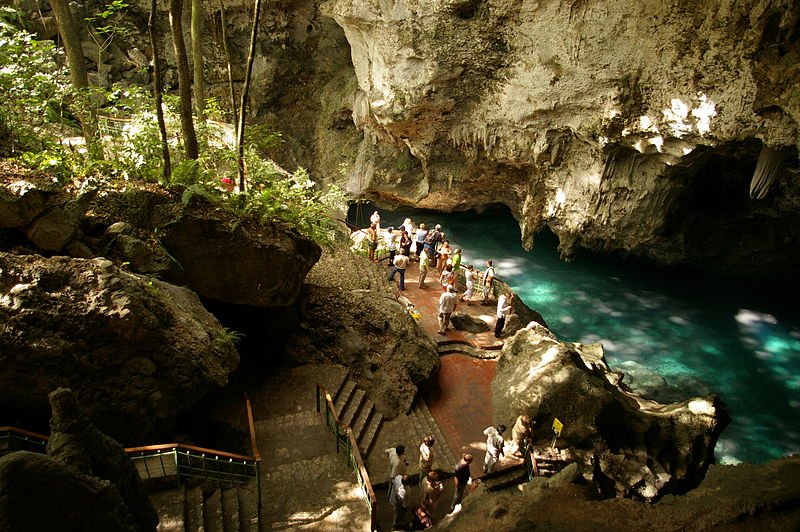 Los Tres Ojos, an open-air limestone cave in Mirador del Este Park, in Santo Domingo
Los Tres Ojos, an open-air limestone cave in Mirador del Este Park, in Santo DomingoSource: https://commons.wikimedia.org/wiki/File:LosTresOjos.JPG
Author: Swatigsood

Traffic in the Dominican Republic is driven on the right. The phone IDD codes are +1-809, +1-829 and +1-849. The electricity is 110V/60Hz using USA plugs. The official currency of the Dominican Republic is the Dominican peso (DOP). In 2010, the Dominican Republic had a nominal GDP of $50.87 billion and a per capita nominal GDP of $5,464. Its per capita GDP at purchasing power parity is $8,648. It has the second largest economy in the Caribbean and the Central American region after Cuba.
During pre-Columbian times, the land of the Dominican Republic has seen various tribes displacing one another throughout history. The Arawakan-speaking Taínos settled on Hispaniola around AF 650, displacing earlier peoples. Then in turn were driven out by the Caribs, who arrived there in the 15th century.
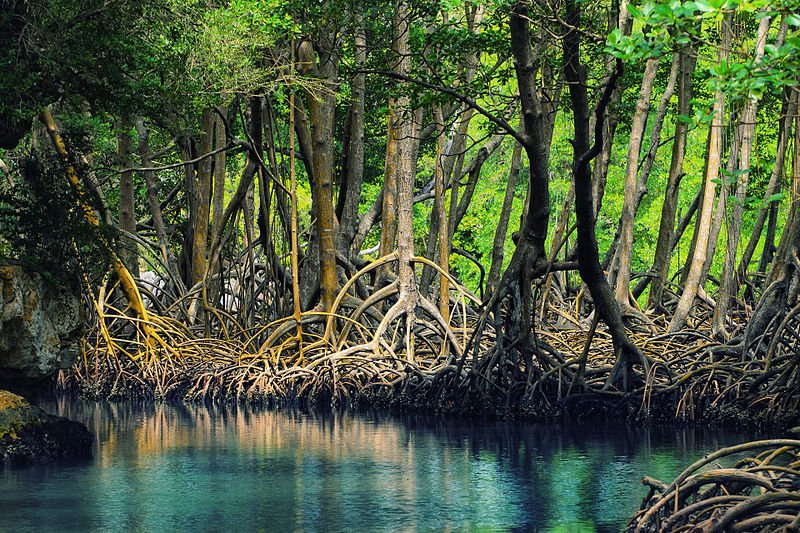 Los Haitises National Park, Dominican Republic
Los Haitises National Park, Dominican RepublicSource: https://commons.wikimedia.org/wiki/File:Dominican_republic_Los_Haitises_mangroves.jpeg
Author: Anton Bielousov

Christopher Columbus arrived on the island of Hispaniola on 5 December, 1492, claiming it for Spain, and naming it La Española. The city of San Domingo was founded by Christopher's brother Bartholomew in 1496, becoming the first permanent European settlement in the New World. Christopher Columbus was buried in Santo Domingo in 1506.
While the native population on Hispaniola was decimated by diseases, abuse, suicide, starvation and other issues, the population of the European settlement of Santo Domingo held steady until the early part of the 18th century, when it increased rapidly with the arrival of white settlers and blacks, composed of freedmen and slaves.
Today the Dominican Republic is one of the major tourist destinations in the Caribbean. It has become a choice destination for golfing as well as eco-tourism. It has the tallest mountain in the Caribbean, Pico Duarte, at 3,098 m (10,164 ft), and the largest lake in the Caribbean, Lake Enriquillo.
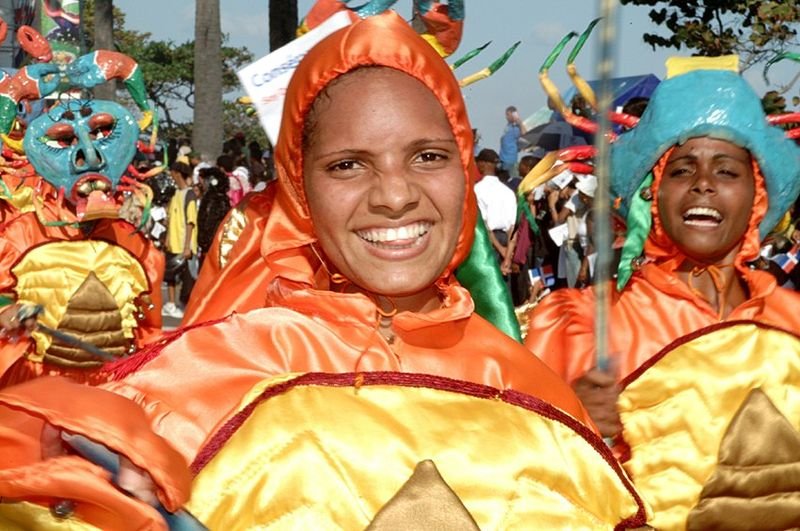 Carnival in the Dominican Republic
Carnival in the Dominican RepublicSource: https://commons.wikimedia.org/wiki/File:Carnival_002_4608.JPG
Author: Stephan Herz

Planning your trip to the Dominican Republic
Visitors from Argentina, Chile, Ecuador, Israel, Japan, Peru and Uruguay do not need a visa. Visitors from most other countries can purchase a tourist card at US$10 on arrival.Las Americas International Airport (SDG) is the main airport serving Santo Domingo and the Dominican Republic. It receives direct flights from many major cities in the United States, the Caribbean and Central America.
Preparing Money for your trip to the Dominican Republic
The currency used in the Dominican Republic is the Dominican Peso (DOP).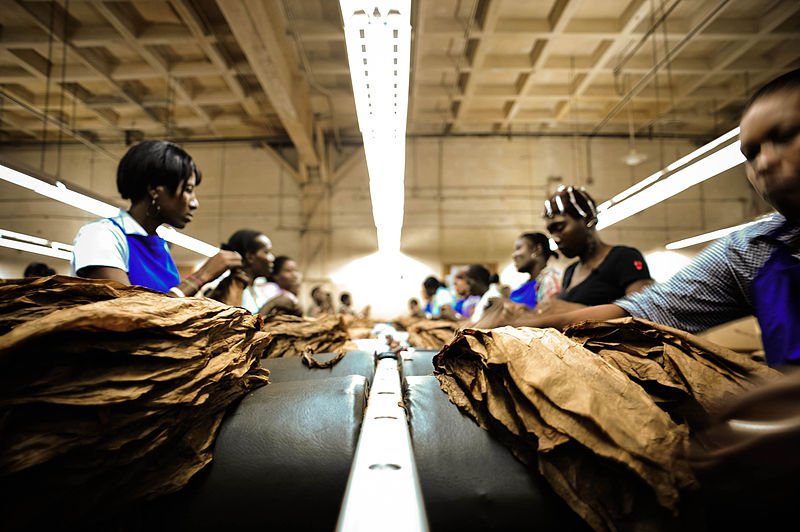 Tabacalera de Garcia Cigar Factory
Tabacalera de Garcia Cigar FactorySource: https://commons.wikimedia.org/wiki/File:Handmade_cigar_production,_process._Tabacalera_de_Garcia_Factory._Casa_de_Campo,_La_Romana,_Dominican_Republic_(1).jpg
Author: Mstyslav Chernov

Major Cities in Dominican Republic
- Santo Domingo - capital
- Higüey
- Juan Dolio
- Puerto Plata
- Punta Cana
- Rio San Juan
- San Pedro de Macoris
- Santa Barbara de Samana
- Santiago de los Caballeros
- Sosua
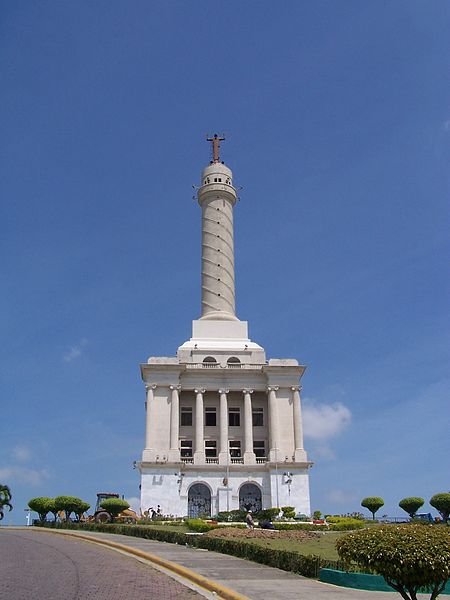 Monument to the Heroes of the Restoration in Santiago de los Caballeros
Monument to the Heroes of the Restoration in Santiago de los CaballerosSource: https://commons.wikimedia.org/wiki/File:Dominicana_Santiago_-_Monument_to_the_Heroes_of_the_Restoration.jpg
Author: Merlin

Places of Interest in Dominican Republic
- Bahia de las Aguilas
- Bayahibe
World Heritage Sites in the Dominican Republic
Dominican Republic ratified the World Heritage Convention on 12 February, 1985. As of August 2010, it has only one World Heritage Site, in the cultural category. Dominican Republic also has another 14 sites on the World Heritage Tentative List.-
Cultural
- Colonial City of Santo Domingo (1990)
Sites in Dominican Republic on the World Heritage Tentative List
- Jaragua National Park (2001)
- Parque Nacional del Este (2001)
- The Ancient Big House of Palavé [Ruta de Los Ingenios] (2001)
- The Sugar Mill of Engombe [Ruta de Los Ingenios] (2001)
- Boca De Nigua Sugar Mill [Ruta de Los Ingenios] (2001)
- Jacagua, Villa of Santiago (2001)
- Montecristi (2001)
- Archaeological and Historical National Park of the Villa of La Isabela, Puerto Plata (2001)
- Archaeological and Historical National Park of Pueblo Viejo, La Vega (#) (2001)
- Historical Centre of Puerto Plata (2001)
- City of Azúa de Compostela (2001)
- The Ancient Diego Caballero Sugar Mill [Ruta de Los Ingenios] (2002)
- Sanate Sugar Mill [Ruta de Los Ingenios] (2002)
- Nuestra Señora de Monte Alegre or la Duquesa Sugar Mill [Ruta de Los Ingenios] (2002)
 Latest updates on Penang Travel Tips
Latest updates on Penang Travel Tips
About this website

Dear visitor, thank you so much for reading this page. My name is Timothy Tye and my hobby is to find out about places, write about them and share the information with you on this website. I have been writing this site since 5 January 2003. Originally (from 2003 until 2009, the site was called AsiaExplorers. I changed the name to Penang Travel Tips in 2009, even though I describe more than just Penang but everywhere I go (I often need to tell people that "Penang Travel Tips" is not just information about Penang, but information written in Penang), especially places in Malaysia and Singapore, and in all the years since 2003, I have described over 20,000 places.
While I try my best to provide you information as accurate as I can get it to be, I do apologize for any errors and for outdated information which I am unaware. Nevertheless, I hope that what I have described here will be useful to you.
To get to know me better, do follow me on Facebook!
Copyright © 2003-2025 Timothy Tye. All Rights Reserved.

 Go Back
Go Back